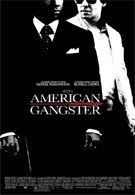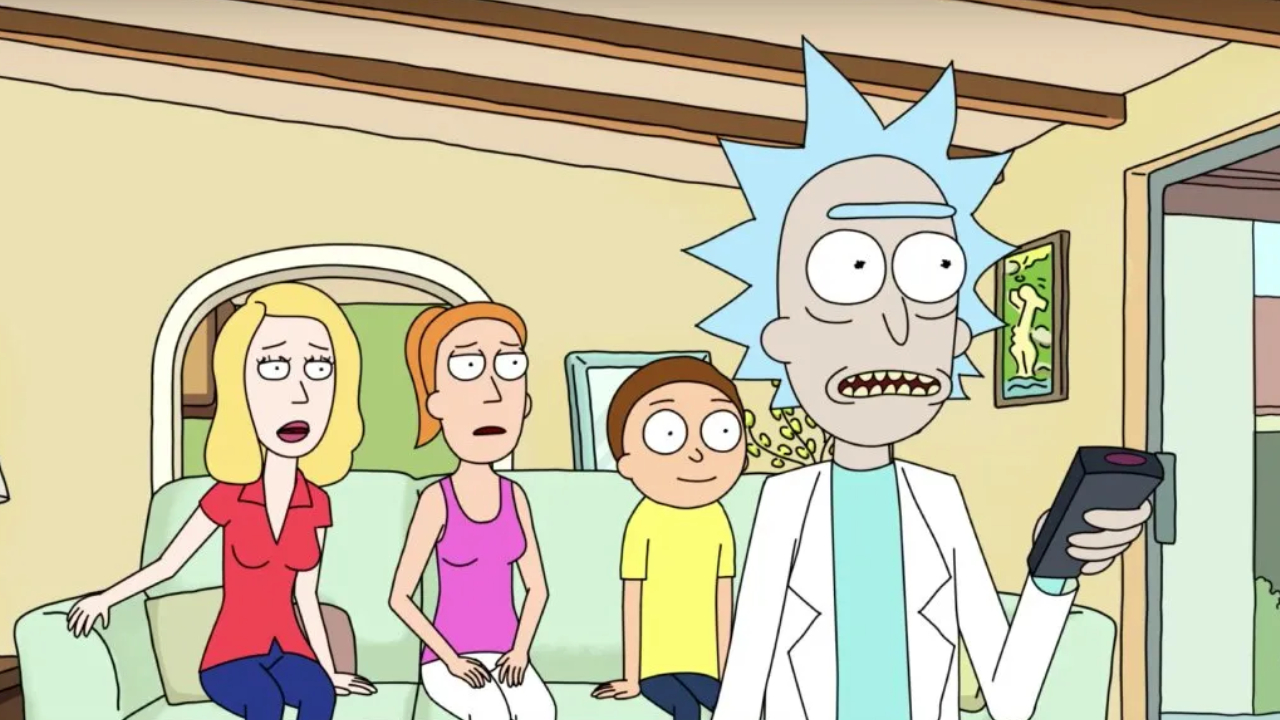Watching the trailers for Ridley Scott’s American Gangster it’s hard not to be reminded of Scorsese’s The Departed, the most recently successful Hollywood spin on the world of mobsters versus cops. But if there’s any similarity between the two films at all, it ends with the advertisements. Where Scorsese’s film is intense, entangled, and full of pathos Scott’s film is calculating and flat. American Gangster is a procedural more than anything; a basic, by the numbers execution of a standard good cop versus sympathetic mob boss drama.
It’s the story of two men on opposite sides of the law. On one side is Frank Lucas; an enterprising and loyal lacky to Harlem’s top kingpin. When his mob boss drops dead, Frank uses the lessons his gangland mentor taught him to take over the massive heroin trade in New York, shipping drugs from Thailand inside the coffins of soldiers. It’s the middle of the Vietnam war, and there’s plenty of body bags to go around. On the other side of the line is Jersey cop Richie Roberts (Russell Crowe), a doggedly honest detective and drug enforcement officer surrounded by a force full of corrupt policemen. Richie is out to end the drug trade by cutting off its head, and the clues he follows are gradually leading him towards Frank.
The irony of both characters is that their professional and personal lives are flipped. Frank does dishonest things for a living, but in his personal life lives by a strict moral code of humility, honesty, and family. Richie is a painfully honest cop, but his personal life is a garbage dump of lies, failed relationships, and insecurities. Playing those two contrasts against each other could have resulted in something interesting, except American Gangster doesn’t let you get a solid feel for either character and since they never actually interact with each other until the end of the movie, that contradiction in who these two men are never plays as much of a factor as it could or should have.
Though we learn a lot of facts about Frank and Richie, we never get inside their heads. Crowe and Washington give typically great performances, yet they’re limited by the surprisingly slim substance of Gangster’s script. We see plenty of both men at their jobs but for Steve Zaillian’s script, more often than not really understanding them is reduced to showing us which beautiful naked woman Richie is sleeping with or flashing to the nice things Frank has bought his mother. For all the time we spend with both Frank and Richie, the film never seems to get any deeper into why they are who they are than that.
Still, the movie’s engaging when we’re watching Frank run the perfect crime syndicate or following Russell Crowe as he attempts to uncover Frank’s dealings with single-minded determination. Early on the movie drags when Scott struggles to squeeze several years of plotting into a few minutes, but once the movie settles down into the day to day to day operations of cops and peddlers it finds its rhythm. Any attempt to compare American Gangster with the legions of classics already submitted to the mobster genre will find Ridley Scott’s new film lacking. However, any Ridley Scott fan who goes in with lowered expectations is likely to leave the theater at least a little entertained, even though two and a half hours is a bit excessive for a film that’s barely better than a mildly acceptable diversion.












